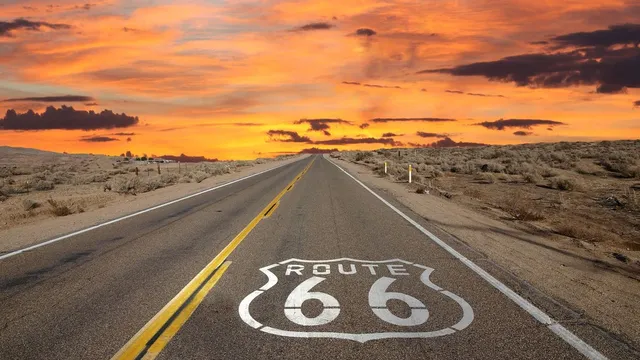
Record travel surge as 72.2 million Americans prepare for Fourth of July
2025-07-01 00:00- A record-breaking 72.2 million Americans are expected to travel for the Independence Day holiday.
- Potential storms are predicted to affect travel and outdoor activities across many parts of the U.S.
- Despite weather concerns, many are still planning to enjoy fireworks displays, particularly in major metropolitan areas.
Express your sentiment!
Insights
As the Fourth of July approaches, a considerable surge in travel has been reported across the United States, with an estimated 72.2 million Americans ready to celebrate the Independence Day holiday. This figure marks a historic peak, attributed to the holiday coinciding with a Friday, creating an extended three-day weekend for many families and travelers. AAA, a leading travel organization, has highlighted this increase compared to previous years, as families and friends seize this opportunity to gather and explore various destinations, particularly beaches and scenic spots. Predictions indicate extensive travel fluctuations due to weather conditions linked to a cold front that may bring widespread storms to the northern Plains and Southeastern United States around the holiday weekend. In the lead-up to the Fourth, many regions are expected to experience typical summer weather, with warm to hot conditions prevalent in the West, while the Midwest and Southeast could see more disruptive thunderstorms. Such climatic patterns could potentially affect popular travel routes and outdoor celebrations. The situation has raised concerns as local authorities may need to impose restrictions on fireworks due to dry conditions worsening in various areas. Forecasters are monitoring these weather trends closely to provide travelers with timely updates. Traveling by air has also reached record-high levels. The TSA is preparing to screen approximately 18.5 million passengers during the holiday period, marking significant growth in air travel management after the pandemic. Analysis indicates that the efficacy of airline operations and the booming demand for travel reflect a robust economic situation, with major airlines expanding their flight offerings to accommodate the crowds. However, potential thunderstorms could impact travel schedules, particularly in major hubs, leading to additional challenges for travelers embarking on their weekend plans. Highlighting the diversity of modes of travel, while air travel is on the rise, road trips through scenic routes remain a favored method for many families looking to engage in the Great American Road Trip experience. Despite the weather-related obstacles anticipated during this timeframe, major fireworks displays are still planned for cities like New York, Boston, and Washington D.C., where favorable weather is expected. The National Fireworks Association underlines the importance of public safety alongside the festive spirit of fireworks shows. Moreover, in regions where storms are predicted, travelers are encouraged to stay vigilant for changing weather conditions that could impact their holiday plans or encourage be wary of potential storm systems in the region. Overall, the cultural significance of the Fourth of July remains intact, albeit complicated by logistical challenges that accompany a record number of travelers across the nation.
Contexts
The Fourth of July, a cherished national holiday in the United States, symbolizes independence and unity, and is often celebrated with fireworks, barbecues, and outdoor activities. However, celebrations can be heavily influenced by weather patterns, impacting attendance, safety, and overall enjoyment. Historical data indicates that inclement weather, such as rain, extreme heat, or storms, can significantly deter people from participating in traditional festivities. For instance, regions experiencing prolonged rain may see reduced outdoor gatherings, leading to smaller community events and cancellations of fireworks displays. Staying vigilant of weather forecasts is essential for organizers and attendees alike, as conditions can change rapidly, affecting plans at the last minute. Moreover, heat waves have increasingly become a concern during this time of year, with temperatures soaring to record highs in various states. Excessive heat not only discourages outdoor activities but also poses health risks, especially to vulnerable populations such as children and the elderly. To mitigate these risks, many communities are now instituting measures such as providing cooling stations and ensuring proper hydration during events. Safety precautions have become integral to celebration planning, responding to the dual challenges posed by adverse weather and public health. Another aspect of weather's impact on Fourth of July festivities includes the logistics of fireworks displays. High winds can pose risks of sparks traveling to dry grass and starting fires, compelling cities to cancel shows for safety precautions. As climate change continues to shift typical weather patterns, longer-term forecasting is becoming crucial for event planners. It is not only about assessing the day-of conditions but also about understanding seasonal weather trends to inform future celebrations. Higher instances of unpredictable weather events call for adaptability in planning and responsiveness to ensure community safety. In reflection of these challenges, many communities have begun incorporating alternative forms of celebration that can function regardless of weather conditions. Indoor festivities, virtual events, and socially-distanced gatherings have provided participants with multiple options that maintain the spirit of independence without compromising safety. The Fourth of July continues to be a time of national unity and joy despite weather-related challenges; adaptive planning and responsiveness towards weather conditions are key aspects that could enhance the celebratory experience while ensuring the well-being of participants.